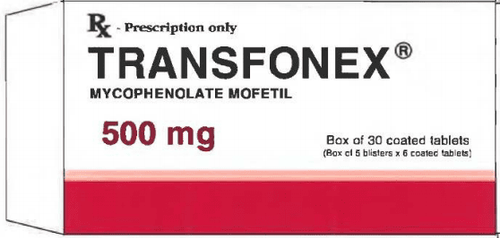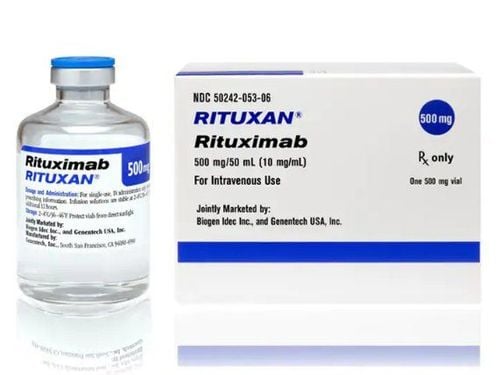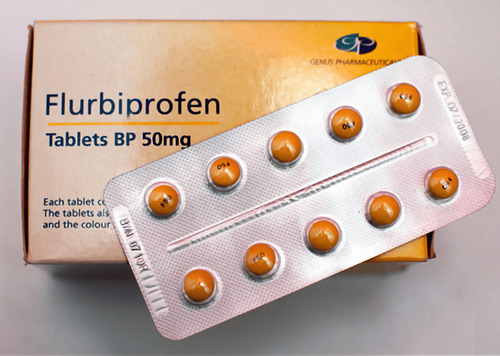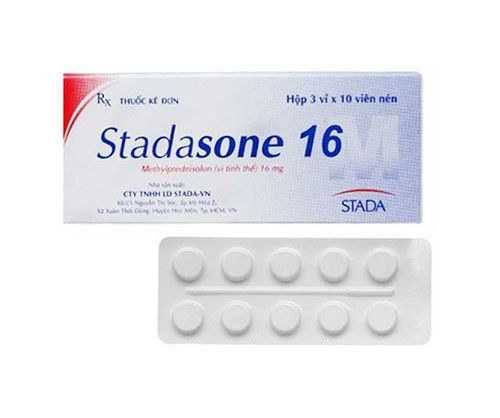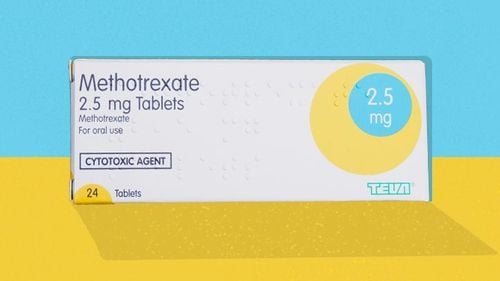This is an automatically translated article.
Article by Pharmacist Pham Thi Kim Dung - Faculty of Pharmacy - Vinmec Times City International General Hospital
Medlon has anti-inflammatory, anti-allergic and immunosuppressive effects. This is a prescription drug, self-administering the drug can have consequences, especially when used for a long time.
1. Uses of Medlon
Medlon medicine has the active ingredient methylprednisolone, which is a drug of the glucocorticoid group. The drug is prepared in the form of tablets with 2 different strengths for ease of use: 4mg and 16mg.
Because of its strong anti-inflammatory effect, it can quickly relieve pain caused by inflammation, such as arthritis. Therefore, the drug can be indicated in cases of acute and chronic inflammation, diseases related to the allergic immune system such as: Severe allergic diseases or autoimmune diseases, after organ transplantation or cancer-related diseases.
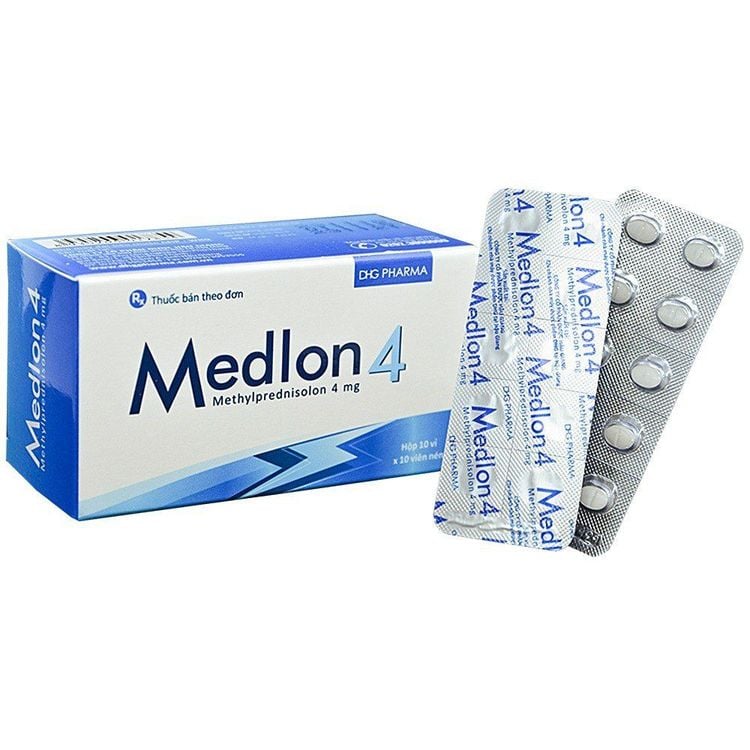
Thuốc Medlon có hoạt chất là methylprednisolon, là một thuốc thuộc nhóm glucocorticoid.
2. Usage and dosage of Medlon
This is a prescription drug, patients should only use the drug when examined, evaluated, advised and prescribed by a doctor. Medlon is used orally, with a starting dose of 4-40mg / day depending on the indications and severity of the disease. The dose may be increased or decreased according to the individual patient's response.
Patients should not take the dose of another person with a similar condition. The appropriate dosing is based on many factors that require evaluation and monitoring by the clinician. Taking the wrong dose can lead to ineffective treatment or increase the risk of side effects. If you arbitrarily use it without being examined and evaluated, patients may not be able to treat it safely, especially when used for a long time. Intermittent but regular use of corticosteroids can also cause side effects similar to those of long-term continuous use.
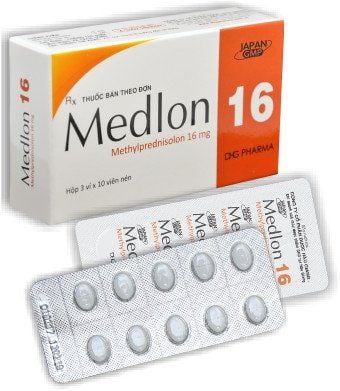
Thuốc Medlon là một loại thuốc kê đơn
3. Side effects when using Medlon
Not all patients experience side effects of the drug, especially for patients who only use the drug for short-term treatment with the usual dose (less than 3-7 days).
Undesirable effects most often occur with high doses and long-term use of methylprednisolone. Usually, the doctor will advise the patient on the benefits and risks of a treatment regimen before starting treatment.
Possible side effects: Insomnia, nervous excitement (especially at high doses), dyspepsia, peptic ulcer, hirsutism, hyperglycemia or poor glycemic control in patients diabetes, hypertension, joint pain, cataracts... The drug can also cause skin atrophy, thinning, bruising...
In case of prolonged use, the drug can cause Cushing's syndrome , muscle weakness, osteoporosis, increased fracture risk, especially in high-risk subjects. In case you need to use it for a long time, your doctor will probably evaluate and prescribe you some drugs to help minimize unwanted effects (such as stomach protectors, calcium, vitamin D ...)
You should talk to your doctor about any unusual symptoms while using the drug for advice and more information. When you experience serious reactions, affecting your daily life or quality of life, you need to stop taking the medicine immediately and go to the hospital for examination, evaluation and timely treatment.
4. Notes when using Medlon
Patients need to discuss with their doctor about their medical history, medication history, pregnancy, and lactation before being prescribed to ensure your safety.
If you are taking Medlon for a long time or in high doses, you need to talk to your doctor before getting vaccinated for advice on the benefits, risks, as well as the optimal time of vaccination.
Acute adrenal insufficiency can occur when stopping the drug suddenly after a long time of treatment, so you should not stop taking it on your own. You must not increase, decrease or stop taking your medicine without consulting your doctor. Adherence to treatment is important in ensuring the effectiveness and safety of a drug. Generally, if you have been taking doses higher than 16mg/day during the day or higher than 4mg/day when taken in the evening for longer than 3 weeks, you will need to slowly reduce your dose before stopping completely. After that, patients need to visit periodically to be monitored and adjust the dose in accordance with the body's response.
If the patient has diabetes and notices a significant increase in blood sugar while taking the drug, it is necessary to immediately discuss with the current treating doctor and the regular monitoring endocrinologist. You may need to adjust your medication regimen accordingly.
Drugs can interact with other drugs, you should talk to your doctor, pharmacist when you need to take any more medicine for more information.





